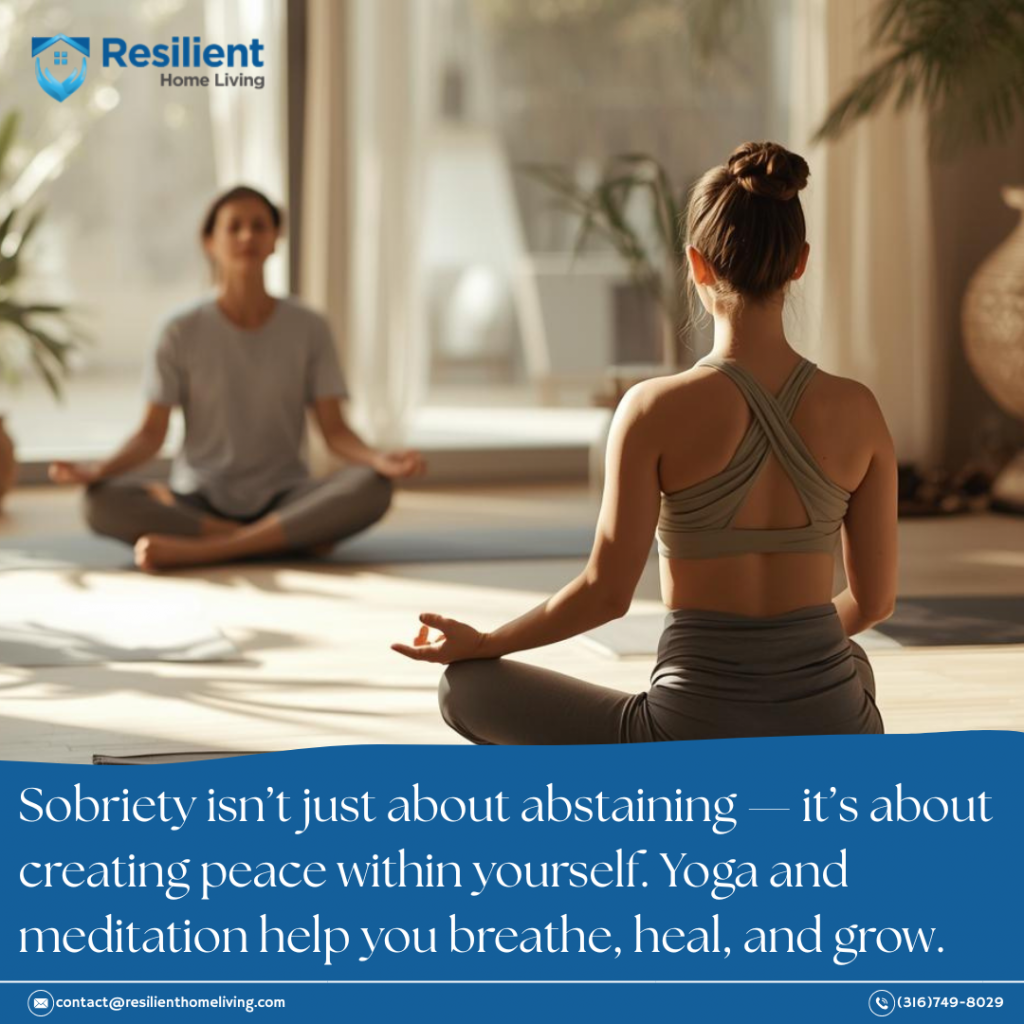Introduction
Recovery is not just about abstaining from substances — it’s about building a new foundation for physical, mental, and emotional well-being. For many, yoga and meditation become life-changing tools that support sobriety by calming the mind, strengthening the body, and deepening self-awareness.
Yoga and meditation are more than wellness practices — they’re healing practices. They offer balance, peace, and resilience, helping people in recovery manage stress, navigate triggers, and find joy in the present moment.
🌱 Why Yoga Helps in Sobriety
Yoga isn’t about perfect poses — it’s about reconnecting with your body. Addiction often disconnects us from ourselves, while yoga creates space to listen and honor what our bodies need.
1. Reconnecting Mind and Body
Yoga encourages mindfulness through movement. By focusing on breathing and body alignment, you begin to rebuild a relationship with yourself that may have been neglected during addiction.
2. Stress Reduction
Stress is a common relapse trigger. Yoga helps lower cortisol (stress hormone) levels and replaces restlessness with calmness.
3. Building Strength & Resilience
Both physical and mental strength grow through practice. Each pose is a reminder that you can push through discomfort and come out stronger — a metaphor for recovery itself.
🌱 Why Meditation Supports Sobriety
Meditation complements yoga by calming the mind and reducing mental noise.
1. Managing Cravings & Triggers
Mindfulness meditation teaches awareness without judgment. When cravings arise, instead of reacting, you learn to notice the urge, breathe, and let it pass.
2. Emotional Regulation
Addiction often numbs emotions. Meditation helps you sit with feelings — even uncomfortable ones — without running from them. Over time, this builds resilience and emotional maturity.
3. Cultivating Presence
Sobriety thrives when you live in the present, not in regret of the past or fear of the future. Meditation strengthens this ability to stay grounded in the “now.”
🌱 Simple Practices to Get Started
You don’t need an expensive studio or hours of free time. Start small:
- Morning Yoga Flow (5–10 minutes): Gentle stretches, cat-cow, downward dog, child’s pose.
- Breathing Exercises (2–5 minutes): Box breathing (inhale for 4, hold for 4, exhale for 4, hold for 4).
- Mindfulness Meditation (5 minutes): Sit comfortably, close your eyes, and observe your breath. Notice thoughts without judgment.
- Evening Wind-Down: Restorative yoga poses and gratitude meditation before bed.
Consistency matters more than perfection.
🌱 Combining Yoga + Meditation in Recovery
Together, yoga and meditation form a powerful self-care practice. Yoga prepares the body for stillness, while meditation calms the mind. Practicing both strengthens sobriety by:
- Creating structure and routine.
- Replacing old habits with healthy ones.
- Offering tools to cope with stress and cravings.
- Building a deeper sense of peace and purpose.
🌟 Final Thoughts
Sobriety is a journey of rediscovery — of who you are, what you need, and how you want to live. Yoga and meditation are tools that help guide this process with patience, strength, and compassion.
The goal isn’t to be perfect at poses or sit in silence for hours. The goal is to keep showing up — on the mat, in meditation, and in your life. Over time, you’ll notice that recovery feels more grounded, centered, and sustainable.

